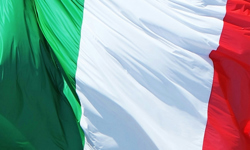As reported by the National Union of Journalists: The original document included a huge list of situations in which the press would have had to have deal with corporation communications departments (press officers) rather than police officers, but this has now been dropped.
Deputy Chief Constable Gareth Morgan, the National Police Chiefs’ Council lead for media relations, said: “We also want to get away from the idea that talking to the media is only for senior officers – the most appropriate person to speak is the person who is responsible for an issue, based on role and not rank.”
He said, if in doubt, communications departments were there as a source of specialist support and advice.
The NUJ also welcomed the dropping of a requirement that all relationships between the media and police should be recorded, but the guidelines do not go far enough improve relations of trust and openness between the police and the press.
Members of the NUJ, who contributed to the union’s submission to the consultation, said that while the police do not name people who have been arrested, there are times it is useful for the press to have the correct information. An award-winning crime reporter on a local paper, said:
“In today's world of social media, where the general public can name an arrested person to thousands of people on Twitter/Facebook, it remains particularly important that the press remains a trusted source of accurate information and the police help us to do so through a trusting relationship."
In May 2013, the Daily Mail published a survey which showed that a third of forces – 14 of 43 – refused to name suspects even after they had been charged.
The NUJ considers that the police should identify people dealt with by cautions if a particular case is in the public interest; the same applies to speeding fines and other fixed penalties.
The union’s submission to the consultation highlighted examples of where the police have undermined relationships with the press by seeking production orders to seize journalistic material, putting the journalist at risk; by misusing the Regulation of Investigatory Powers Act to secretly obtain journalists’ mobile phone records and emails; and by monitoring journalists just doing their jobs and placing them on the Metropolitan Police's domestic extremist database. In all these cases they union has fought to protect journalists and their sources.
Journalists need to produce copy quickly. Once a verdict in a trial is announced, they will be expected to produce a news story and a full backgrounder. To do this they need the information in advance and in return they need to show they can be trusted to honour embargoes and use “non-reportable” information carefully. But the police cannot dictate what the press publishes or broadcasts.
There is no evidence that journalists break embargoes, they would not last long in the profession if they did.
Séamus Dooley, NUJ acting general secretary, said: “The public needs to have confidence in its police. The media plays a vital role as a watchdog and in holding the police to account so the public can have this confidence. This is only possible when there is an open and collaborative relationship between the police and the media. Journalists should have the right to challenge the police, the behaviour of police and how they conduct their operations.
“On the whole, the press acts responsibly. Recently, newspapers and broadcasters agreed to withhold the names of suspects in terrorist incidents at the request of the police.
“The College of Policing guidelines are disappointing in that they are more about restricting information than improving transparency. However, there have been a number of significant changes, for example removing the rule that virtually every inquiry from the press had to be made through the press office and we welcome that.
“The NUJ will continue to work with the police to improve relations and accurate reporting, for example we recently worked with them to produce a video setting out the rights of the press when covering demonstrations and riots. The union also believes that Leveson Two, which included examining the corrupt relationship between the Met and News International, now News UK, should go ahead.”










